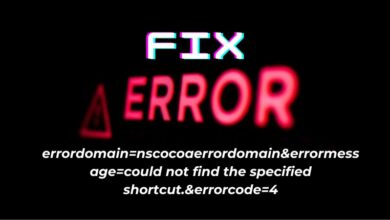How To Choose the Right Car Insurance Policy for Your Needs
Table of Content
Choosing the right auto insurance policy can feel like a complex process with a myriad of factors to consider. But with the right information and direction, you can have a clear understanding of your options, allowing you to weigh different factors and make an informed decision. Below, we’ll delve into the considerations for picking the best auto insurance package for your needs, and emphasize the importance of comparing car insurance options with tools like iSelect where you can go now to make side-by-side comparisons of the top providers. Keep reading to learn more about finding the right car insurance policy for your needs.
Understanding Car Insurance Basics

To start, it’s crucial to understand the fundamental principles of car insurance. Car insurance is a contract between you and the insurance company, where you pay a premium, and the insurance company agrees to pay for specific car-related financial losses you may experience during the term of the agreement.
There are several types of car insurance, including liability insurance, personal injury protection, collision coverage, and comprehensive insurance. Knowing the basics of each type can help you make an informed decision about what kind of coverage you need.
Lastly, be mindful that car insurance regulations can vary from one location to another. Familiarize yourself with the laws in your area. This groundwork will help you grasp your obligatory requirements before choosing additional coverages.
Factors To Consider When Choosing Car Insurance
Next, let’s discuss the factors you should consider when selecting a car insurance policy. Consider the type and level of coverage you need. Think about your vehicle’s value and how you use your car. If you drive a lot for work, for instance, you may require more comprehensive coverage.
Secondly, consider the cost. While it’s crucial to find a policy you can afford, don’t be swayed by low premiums alone. A low-cost policy may not provide adequate coverage, leaving you financially exposed. Balance affordability with the right level of protection.
Lastly, consider your personal circumstances—the age of your car, your driving record, and any unique needs or situations you might need to address. Assessing these aspects can help you identify the right insurance for you.
Deciphering Policy Terms and Conditions

Insurance policies can be laden with legal and insurance jargon, making it difficult for the average person to understand. But, knowledge is power, and understanding these terms can help you choose a policy that truly meets your needs.
Terms such as ‘deductible‘, ‘premium’, ‘liability’, and ‘comprehensive coverage’ are critical in understanding how your policy works and what exactly it covers. Take the time to understand these terms before signing any car insurance contract.
Finally, don’t be afraid to ask questions. If anything is unclear, reach out to the insurance company for clarification. Always ensure you’re fully informed before making any commitments.
The Link Between Car Type and Policy Selection
Your vehicle type can significantly influence the kind of insurance policy you choose. For instance, a high-performance sports car would likely require a more expansive coverage than a modest sedan. This is due to the potentially higher repair costs and the greater risk associated with such cars.
Moreover, certain cars might attract more thefts, making comprehensive insurance fundamental. If you have a financed car, your lender may require you to carry certain types of insurance. So, car type plays an integral role in insurance policy selection.
Choosing the Best Fit Car Insurance Policy
Conclusively, finding the best car insurance entails understanding your needs, familiarising yourself with industry jargon, and investigating potential providers. Remember, it’s about finding the balance between comprehensive protection and affordability.
Don’t rush the decision. Take your time to explore different providers, ask questions, and weigh your options. Remember, the best policy isn’t necessarily the cheapest, but the one that provides value for your money and security for your vehicle.
Keep an eye out for discounts and flexible payment options as well. Many insurance providers offer various discounts and payment flexibility to meet their customer’s needs.




